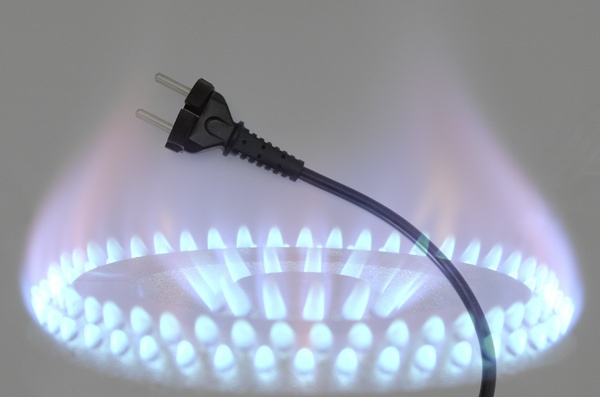 So far we've given you a list of things to consider when shopping for a new water heater, and we've compared traditional and tankless models, so this week we thought we'd help you learn the differences between gas water heaters and electric water heaters.
So far we've given you a list of things to consider when shopping for a new water heater, and we've compared traditional and tankless models, so this week we thought we'd help you learn the differences between gas water heaters and electric water heaters.
We've compared these two units on four important criteria: Performance, Efficiency, Cost, and Lifespan. See how the models stack up to one another:
Gas Water Heaters
- Performance: There are two big performance advantages associated with gas water heaters: the fairly quick recovery rate (about 14 gallons per hour) and their ability to continue working even when the power goes out.
- Efficiency: The downside of the fast recovery rate is the inefficiency associated with it. Since the water is always kept hot, your unit is always using energy; top it all off with heat loss and you'll see how your hot water heater may not be your most efficient appliance. Fortunately, investing in a newer, high-quality model or even just insulating your current unit can improve efficiency.
- Cost: If your home already has a gas line, a gas water heater will likely be a far cheaper model to use and maintain.
- Lifespan: You can expect a gas water heater to last for about 12 years.
Electric Water Heaters
- Performance: Electric water heaters have a far slower recovery rate of about 50 gallons per hour, so if you have a larger family this may not be the best choice for your home. Also, electric water heaters will not work in the event of a power outage, so if you live in an area prone to storms you may also want to opt for a gas unit.
- Efficiency: Electric heaters knock the ball out of the park when it comes to efficient energy use, but, of course, the trade-offs are the longer recovery time and cost of the electricity itself.
- Cost: While more energy efficient, electricity just costs more than gas. So, any savings you get from a more efficient appliance go right back into actually powering the unit; therefore you can expect to spend more using an electric water heater.
- Lifespan: You can expect an electric water heater to last for about 13 years.
When choosing a water heater, you need to take into consideration the size of your house (or business), the number of people living in your home, how much hot water you use on a daily basis, and even maintenance. If you need help making the right choice, give us a call at (864) 242-5511 or contact us online — we're here to help with all of your plumbing needs!
If you enjoyed this plumbing article, please check out other posts on our blog and join us on Facebook, Twitter, LinkedIn, and Google+ to see why the Greenville, SC area calls us "The Picky People's Plumber!"


.png)